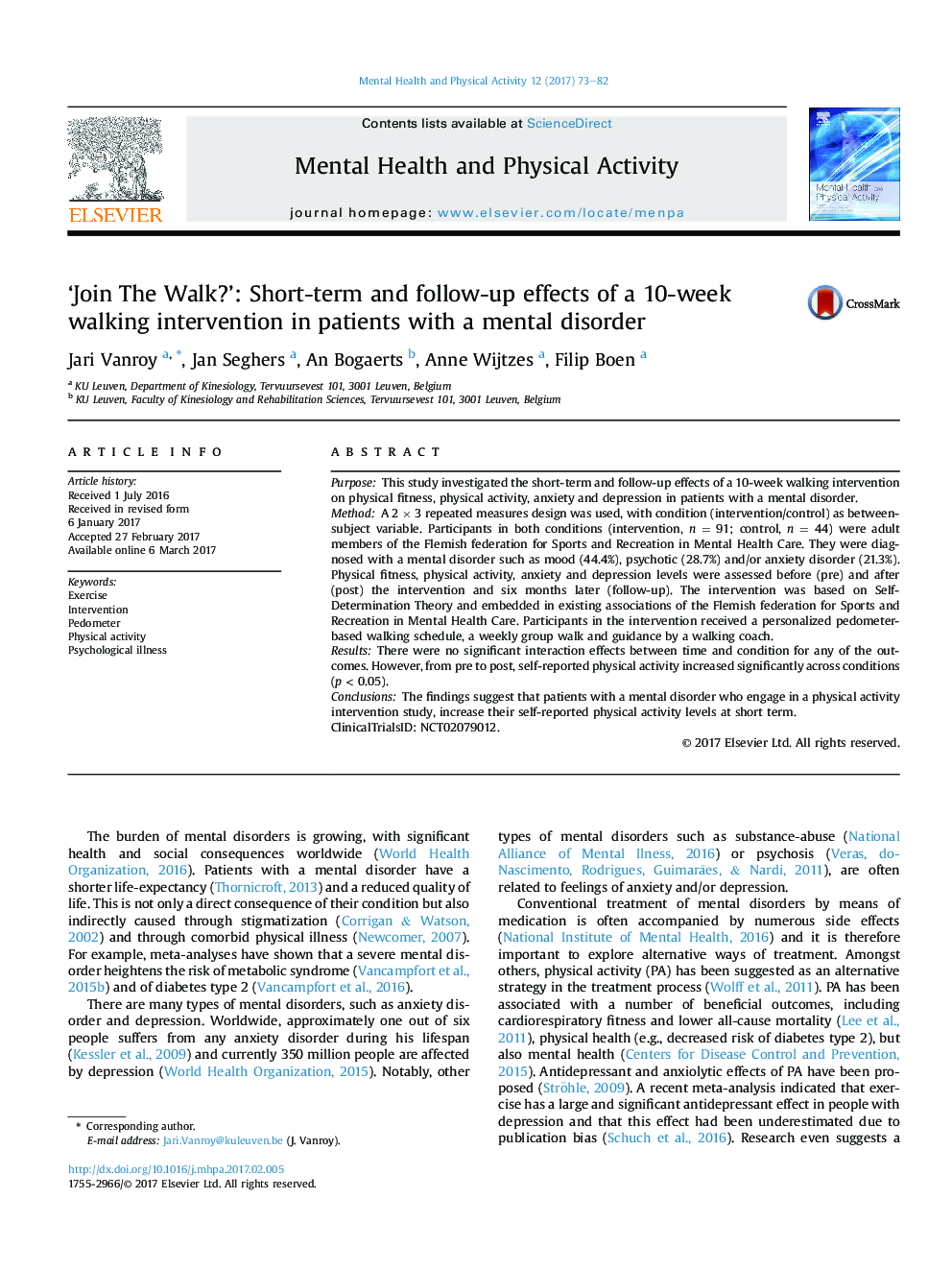| Article ID | Journal | Published Year | Pages | File Type |
|---|---|---|---|---|
| 5039469 | Mental Health and Physical Activity | 2017 | 10 Pages |
â¢A walking intervention in patients with a mental disorder showed no mental benefits beyond control.â¢A walking intervention in patients with a mental disorder showed no physical benefits beyond control.â¢A PA intervention study in patients with a mental disorder might increase self-reported PA levels at short term.
PurposeThis study investigated the short-term and follow-up effects of a 10-week walking intervention on physical fitness, physical activity, anxiety and depression in patients with a mental disorder.MethodA 2 Ã 3 repeated measures design was used, with condition (intervention/control) as between-subject variable. Participants in both conditions (intervention, n = 91; control, n = 44) were adult members of the Flemish federation for Sports and Recreation in Mental Health Care. They were diagnosed with a mental disorder such as mood (44.4%), psychotic (28.7%) and/or anxiety disorder (21.3%). Physical fitness, physical activity, anxiety and depression levels were assessed before (pre) and after (post) the intervention and six months later (follow-up). The intervention was based on Self-Determination Theory and embedded in existing associations of the Flemish federation for Sports and Recreation in Mental Health Care. Participants in the intervention received a personalized pedometer-based walking schedule, a weekly group walk and guidance by a walking coach.ResultsThere were no significant interaction effects between time and condition for any of the outcomes. However, from pre to post, self-reported physical activity increased significantly across conditions (p < 0.05).ConclusionsThe findings suggest that patients with a mental disorder who engage in a physical activity intervention study, increase their self-reported physical activity levels at short term.ClinicalTrialsID: NCT02079012.
